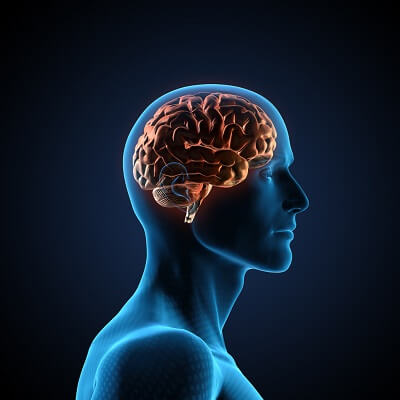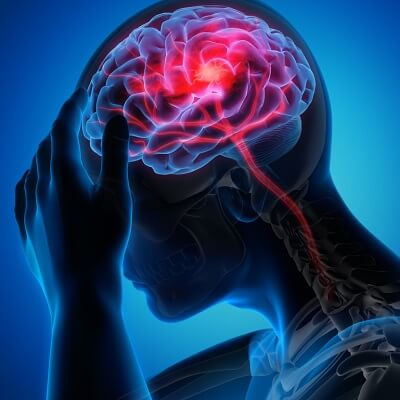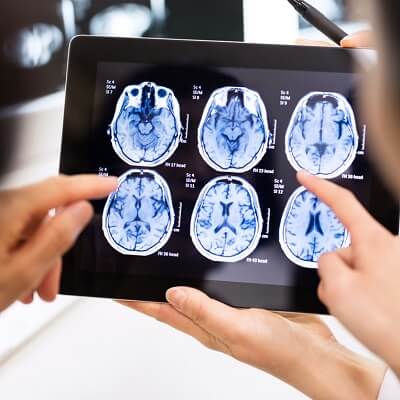What Is the Relationship Between Testosterone and Brain Function?
There is a link between testosterone and healthy brain function.
Testosterone is a critical hormone. It is essential for many aspects of a man’s health, including bone and muscle growth, sperm development, sexual performance, and fat metabolism. In addition to the many ways that testosterone contributes to a man’s (as well as a woman’s!) health, it also has an important effect on brain activity. That’s because certain regions of the brain are full of testosterone receptors and are subject to its influence.
This is important because when testosterone binds to those receptors, blood flow appears to increase to areas that are responsible for several brain functions. Specifically, testosterone seems to “light up,” those areas responsible for cognition and memory.
Therefore, doctors know that when your body’s natural testosterone levels decline, specific brain functions can, too.
How Does Low Testosterone Affect the Brain?
A testosterone deficiency, or low testosterone, can impact you brain function in three main ways: memory, focus and cognition. There are also impacts beyond impairment of brain function. Low testosterone also effects emotional stability and mental health.
Older men, and particularly, menopausal women, complain of a condition known as “brain fog.” Brain fog relates to memory issues, a general sense of mental clarity, and an inability to focus on tasks. Taken together, these create a “cloudiness” in your mind that doctors refer to as “brain fog.” In many studies, low testosterone has been shown to contribute to brain fog.
Low testosterone negatively impacts memory, cognition and your ability to process information.
How Does Low Testosterone Impact Cognition?
Maintaining healthy testosterone levels, helps you to stay sharp mentally, and preserve high cognitive acuity. Cognitive abilities drop in men with low testosterone. When your testosterone levels are below normal, you may find it difficult to find words when speaking, or easily lose your train of thought during a conversation. This can have a negative impact on job performance.
Men with low T have also reported that it becomes difficult to process new information, and learning new tasks becomes tough, or impossible. This is because research has shown that low testosterone makes it difficult to absorb new details or store new information. This may be way many older people find it very hard to embrace new things such as smart phones and computers.
How Does Low Testosterone Impact Memory?
Several studies have indicated that age-related testosterone loss, is responsible for much of the memory loss typically experienced by older men. Discussing his research into low testosterone and memory loss, Researcher Jeri Janowsky, PhD, professor of behavioral neuroscience and neurology at the Oregon Health & Science University, said that men with low testosterone can “immediately get the information, but then the [brain] can’t consolidate it and send it off for storage.
When you look at their memory, they’re perfectly normal when they’re immediately asked to recall something, but they can’t hold or save the information as well in order to recall it over a retention interval, over a period of time.” Basically, “They’re faster at forgetting,” said Janowsky in a recent news release on his research.
Does Low Testosterone Increase the Risk of Dementia?
Of greater concern is not only that low testosterone seems to be responsible for the mild memory issues all older men face, but that in may also increase the risk of Alzheimer’s dementia.
A recent study conducted in China found that low testosterone levels in older men, that already had some memory problems, could lead to Alzheimer’s disease and/or increase the risk for developing age-related dementia.
The Chinese study concluded that older men with early memory declines who did not yet show signs of Alzheimer’s, were far more likely to develop the disease if they had low testosterone.
The study is not the first to suggest that testosterone replacement could play a role in preventing Alzheimer’s disease. A Wayne State University study found that every 50% increase in free testosterone in the bloodstream was associated with a 26% decrease in the risk of developing Alzheimer’s.
How Does Low Testosterone Impact Emotional States?
The testosterone receptors in your brain crave testosterone. When you have low testosterone, these receptors are literally starved of testosterone, which can lead to:
- Mood swings
- Irritability
- Stress
- Anxiety
- Depression
Low testosterone not only effects cognitive function, but emotional states as well.
Low testosterone impacts the entire scope of your mental health.
Can Testosterone Replacement Therapy Improve Brain Function?
The good news is that testosterone replacement therapy has been proven to improve memory and cognitive abilities in men with low testosterone. Bringing your testosterone levels back into the normal ranges through testosterone replacement can also:
- Lower your risk of dementia
- Reduce brain fog
- Improve moods
- Reduce anxiety and depression
- Improve focus, concentration, and ability to learn new tasks
Testosterone replacement can improve mental acuity and emotional well-being, but the only way to get a prescription for testosterone injections, is to see a doctor and have your testosterone level tested.
Brain function in men with low testosterone can be improved with testosterone therapy.
Now that you know a little bit more about low testosterone and how it can impact cognition and brain function, why not contact us today, and see if you can benefit from the life-changing benefits of testosterone therapy.







